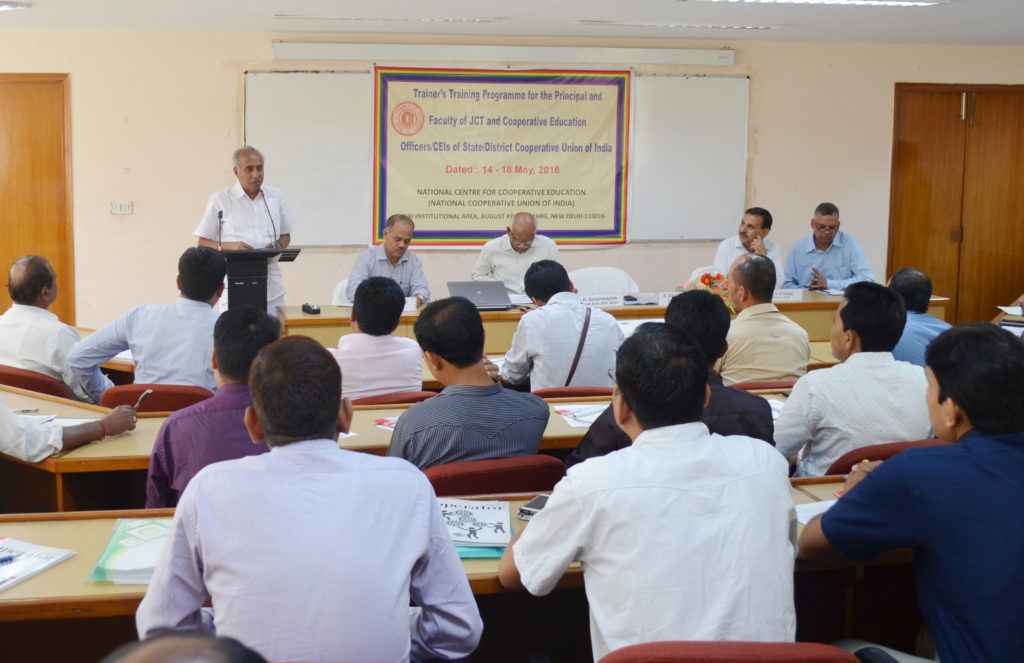NCCE conducted a Trainers Training Programme for Cooperative Education Personnel of State and District Cooperative Unions and Faculty Members of Training Centres of India. More than fifty participants coming from the states of Assam, Arunachal Pradesh, Gujarat, Karnataka, Chattisgarh, Madhya Pradesh, Telanagana, Orissa and West Bengal attended the programme.
The prime objective of the programme was to understand the importance of training in cooperative organizations, design need based training programmes, optimal utilization of the resources available for training and implement training programmes systematically & professionally, new schemes and policies of Government of India and State Government for development of cooperative sector and recent changes in cooperative law and its effect among cooperatives.
The programme was inaugurated by Shri Shivdasan Nair, Governing Council Member of NCUI in his address he narrated that all State Cooperative Unions need to promote the personnel to acquaint with the training programmes in a systematic way so that personnel can work in professional manner in implementation of training programmes by optimally utilizing available human resources.
“Training is the tool for removing hindrance in the cooperatives and uplifting of skill as well as capacity building of Board of Directors and employees. Hence, training programme should be need based and more effective”, Nair emphasized.
N.Satya Narayana, Chief Executive, NCUI in his remarks said that State Cooperative Unions, need to take up the more effective role for implementation of more and more training programmes in a professional manner. In this direction, NCUI is eager to provide all support for effective implementation of the training programmes, he added.
V.K. Dubey, Director, NCCE emphasized on the significance of the effective training programme for cooperative development in states. He elaborated his points quoting examples, claimed a release from NCCE.
Experts from Government of India and those from some of the renowned institutions laid emphasis on systematic approach to effective training, inter-personal communication skill, development of different training methods, structure and functioning of cooperative education, team-building and evaluation methods.
They also explained project preparation and diversification of business, schemes and policies of government of India, especially for cooperative, HRD, media, GST, IT & Communication, e-banking, cooperative law, problems and challenges before cooperatives education and strategies to come out were discussed.
The participants also interacted freely in each session, and suggested new ideas which were taken up for further discussion. As a part of the study visit, the participants later visited National Cooperative Development Corporation in New Delhi where Mukesh Kumar, Executive Director, NCDC welcomed them. Kumar In his presentation briefed them about activities of NCDC.
The programme was coordinated successfully by A. R. Srinath, Deputy Director. He also proposed a vote of thanks.
